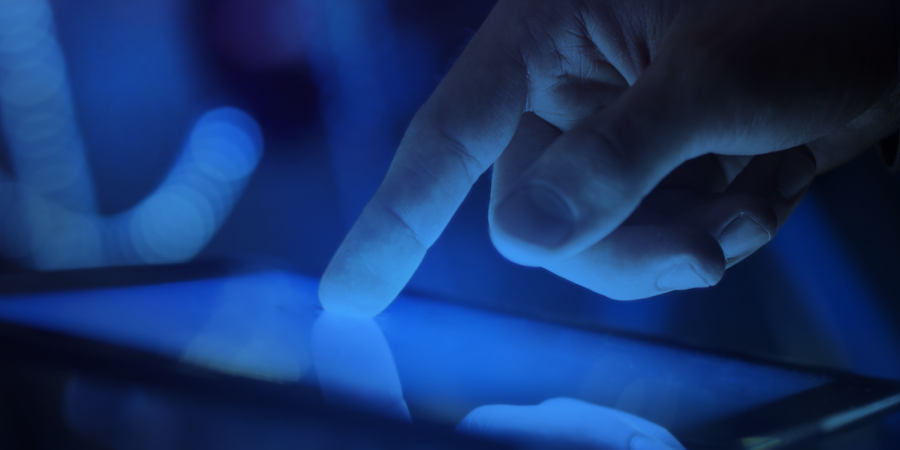The Dark Side of Blue Light
Blue Light. A term that has become we have become all but too familiar with as the integration of technology in our society has contributed to a massive increase in our blue light exposure. Medical professionals, scientists and the media have all spilled the tea on the potential blue light has to threaten our health and well-being.
What is blue light? According to Harvard Medical School it is a wavelength most often associated with the sun, that provides a boost in attention, reaction times, and mood: all things that came to an end with sundown. However its application to household items such as fluorescent light, compact fluorescent light bulbs, LED’s , flat screen T.V. and computer monitors, smartphones and tablet screens is ever growing. I encounter each one of these items each day and I’m sure you do as well.
Blue light is a necessary aspect to good health. As previously mentioned it boosts alertness, helps memory and cognitive function and regulates your circadian rhythm. That’s what controls your sleep cycle. A limited amount of exposure to blue light could stunt a child’s eye development! In light of all these benefits,what’s the harm?
Medical analysts worry about the long term effects screen exposure can have because of an individual’s close proximity to the screen and the length of time we spend looking at them. All visible blue light passes through the cornea and lens and reaches the retina. This light has an affect on vision due to its ability to age the eye prematurely. This can contribute to digital eye strain which results in fatigue, dry eyes, and difficulty focusing. Without moderation, too much screen time can lead to damaged retinal cells, causing health issues such as age related macular degeneration: a gradual decline in one’s ability to see. That circadian rhythm I mentioned can also be caught in the line of fire as it can suppress your melatonin levels and shift it up two twice as much. All the time we spend watching Netflix can actually lay the foundation for illnesses such as depression, diabetes and cardiovascular problems to occur.
With all of this information, what do you plan to do about it? Medical professionals advise us to use dim red lights for night lights as they have the least power available to shift our sleep cycles. Additionally we want to avoid looking at bright screens two to three hours before bed. What about the night owls like me that rely on watching a good episode of Grey’s Anatomy before we turn off the lights? Consider purchasing blue blocking glasses or installing an app that filters the blue wavelength at night. It’s worth it! And if all else fails, you have a doctor, ask them!
Consider taking the preventative measures available now to enjoy a prosperous life, while your vision is still yours to have.


